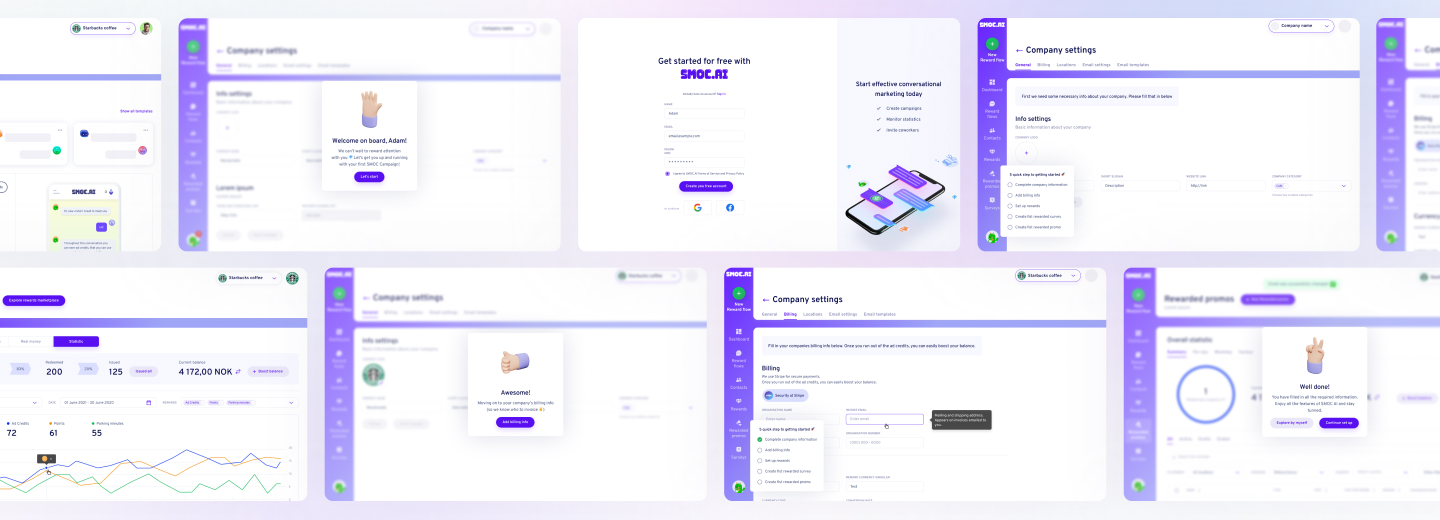Launching a startup is a matter of being quick, being able to adjust to anything, being more flexible, and finally, the startup should have the capacity to be successful further on and grow. In the initial stages, founders do a lot of multitasking, and engineers are developers, deployers, and even coders. But when your product matures, when customers grow into it and become accustomed to it, when your infrastructure grows more and more complicated, that is when the cracks appear. The delays when coming to deployment, bugs getting through, and downtimes are costly.
That’s when many startups face a crucial question: Is it time to bring in a DevOps engineer?
This article will describe the indicators that show that it is time to hire a DevOps expert, what value they can add to a startup environment, and how to make a strategic decision on hiring a DevOps expert.
what’s in the article
- What Is DevOps and Why It Matters for Startups
- Signs Your Startup Needs DevOps
- When to Hire a DevOps Engineer
- How to Hire the Right DevOps for Startups
- How EVNE Developers Can Help
- Conclusion
What Is DevOps and Why It Matters for Startups
DevOps is not a buzzword, but a philosophy and a way of doing things that bridge the gap between development and operations. In a startup environment, this means an automated workflow without a significant amount of manual code that needs to be implemented or firefighting to move code between development to production promptly.
DevOps shouldn’t be all about DevOps tools for startups, but culture. It favors teamwork, shorter development turns, reduction of bugs, and more hours on innovation rather than infrastructure difficulties. DevOps is a strategic asset when time is of the essence and resources are limited, enabling teams to release products of higher quality and reliability.
How DevOps Helps Startups Grow
The startups need DevOps since it might enhance the rate of iteration, the velocity of feedback, and the culture of continual improvement. Automated testing, continuous integration, and infrastructure as code enable teams to become capable of releasing features on a regular and predictable basis.
This kind of reliability and speed not only makes its user happy, but it also provides the developers with useful time to concentrate on the core product. As a startup grows, a well-established DevOps will have it grow without compromising the stability of its systems or the burnout of developers.

Looking to Build an MVP without worries about strategy planning?
EVNE Developers is a dedicated software development team with a product mindset.
We’ll be happy to help you turn your idea into life and successfully monetize it.
Signs Your Startup Needs DevOps
It is rather natural to concentrate on speed instead of structure during the initial period of start-up. But as soon as your product begins to gain some popularity and the team starts scaling, there are red flags that start appearing, showing that you can no longer utilize the current workflow in the development process. That’s when DevOps comes in handy as a necessity. Now, how can we tell that your startup is ready to take a DevOps leap?
Infrastructure Complexity
Once your tech stack grows, it becomes a bottleneck to handle servers, databases, and services manually. When coordination of infrastructure changes takes hours or results in unpredictable breakdowns, then it is obvious that you need DevOps services: one that delivers automation, consistency, and visibility to infrastructure management.
Deployment Issues
Consistent deployment bugs? Does rollback do more harm than good? In case porting out new features makes one feel unsafe or out of control, the DevOps strategy may introduce order. Having version control, providing automated testing, and a deployment pipeline will ease the process, making it safer, faster, and less surprising.
Lack of Automation in CI/CD
Manually running builds and tests not only drag you back, but also increase the chances of human errors. Without continuous integration and delivery (CI/CD), the feedback loops are longer and bugs leak to production. DevOps uses automation at each point, which makes the development faster and still ensures the quality of the code.
Scaling Beyond MVP
MVP is the art of being the first to the market; however, what made you look good in the past will not push you ahead. Your infrastructure and processes have to be able to scale as your user base increases. DevOps provides your new venture with the tools and practices to deal with more traffic, new features, and team growth, and still maintain stability.
Delays Problems
When product updates are always delayed by a lack of environment matches, deployment failures, or labor-intensive setup work, you are wasting your team’s time. DevOps reduces such delays through automation and making processes repeatable, eliminating obstacles and keeping development running.

Proving the Concept for FinTech Startup with a Smart Algorithm for Detecting Subscriptions

Scaling from Prototype into a User-Friendly and Conversational Marketing Platform
When to Hire a DevOps Engineer
It is all about timing, particularly when it comes to the development of a lean, efficient startup team. Hiring a DevOps engineer too early can be a luxury; hiring too late can lead to costly bottlenecks, downtime, and frustrated developers. When the technical basis of your startup cannot be resolved by using fast solutions and workarounds, that is the proper moment to invest in it. These are the main points when it is a good idea to hire a DevOps specialist.
Growth-Stage Timing
After getting initial traction for your product and coming out of the MVP development stage, you need to start considering stability and scale. Now it’s time to start releasing features more often, your uptime is now mission-critical, and patching things as you go is no longer an option. Being able to hire a DevOps engineer in this growth stage also allows you to achieve a sustainable development pipeline, which will sustain velocity in the long run.
Before Scaling Your Team
When you want to expand your engineering team, you obviously require clean, uniform processes. A DevOps engineer can introduce an automated workflow, standard environments including CI/CD pipelines, and in this way, all new developers hired within the company can onboard quickly and, more importantly, integrate without friction.
During Infrastructure Rework
Whether you are moving to the cloud, containerizing applications, or performing some type of core system re-architecture, a DevOps professional adds the experience to get it done fast and safely. They understand tools, automation, modern infrastructure design, and save anywhere between costly errors and downtimes during important changes.
After Technical Debt Starts
Technical debt is holding you back when your team is always firefighting or manually configuring servers, or they are fearful of any deployment. A DevOps team will work to sort it out – they can add automation, monitoring, and repeatable jobs to eliminate friction and get the momentum back.
How to Hire the Right DevOps for Startups
DevOps isn’t just a person who is familiar with the tools, but rather it is a person who knows the startup mindset. You require a person who can work independently, be flexible to change, and create systems that can grow. These are the steps on how to implement DevOps and what steps you should take to get the right person to join your growing team.
In-House vs Freelance
Depending on your immediate needs and budget, you can either select an in-house DevOps or a freelancer.
- On a short-term basis, freelancers are great when it comes to setting up CI/CD, cloud migration, or automated infrastructure. They are fast and cheap to deploy.
- In-house engineers are more appropriate in case you require a person to sustain and develop your systems over an extended duration, contribute to the team culture, and give constant commitment.
In the vast majority of startups, it is logical to begin with a freelance or DevOps company and hire a person internally as soon as the infrastructure is ready.
What Skills to Look For
A professional DevOps for startups doesn’t merely know a lot of tools; they are a systems thinker. Look for people who are familiar with:
- CI/CD solutions such as GitHub Actions, Jenkins, or CircleCI
- Infrastructure as Code (IaC) using Terraform, Pulumi, or Ansible
- AWS, Azure, or Google Cloud platforms
- Data monitoring and logging, such as Prometheus, Grafana,and ELK Stack
- Containerization & orchestration (e.g., Docker, Kubernetes)
- Security best practices of DevOps environments
Bonus: previous experience operating in a fast-paced startup environment is a big advantage.
Questions to Ask During Interviews
Required technical skills and flexibility can be discussed with the right questions during the interview. Try asking:
- Have you made any enhancements to the deployment speed or the reliability in any previous position?
- How do you react to incidents or system failures?
- What would be your process of building a CI/CD pipeline with a small team?
- What is the production speed vs stability trade-off?
- Give us an example, when a DevOps decision saved time or money.

Need Checking What Your Product Market is Able to Offer?
EVNE Developers is a dedicated software development team with a product mindset.
We’ll be happy to help you turn your idea into life and successfully monetize it.
How EVNE Developers Can Help
At EVNE Developers, we know that startups require more than code: they require scalable systems, lightning-fast deployments, and fortress-like infrastructure, no matter when they start. It is not only about technicians: Our DevOps professionals become a part of your workflow, aligning delivery and making it more stable, and supporting growth.
No matter the size of your business, DevOps projects for startups are tailored to the stage of your company and the available budget. We can make sure every deployment is zero-downtime, and the cloud infrastructure is automated, getting you to build faster and smarter with CI/CD pipelines.
Having assisted numerous startups in various industries, EVNE Developers becomes a part of your organization and makes the transition between idea and DevOps startups implementation smooth, without any unnecessary technical overhead.
Conclusion
So, we hope you a bit more aware of how to hire a DevOps for startups. Hiring a DevOps for startups isn’t only an option for acquiring new tools, but making a solid base of speed, stability, and long-term growth. DevOps skills are required when there is a constant problem with provisioning, when your infrastructure gives you a headache, and when you are experiencing growing pains due to your scale-ups.
Doing it on time, even before delays, downtimes, and even technical debts are in the way, you can guarantee that your team to be able to release more rapidly, to already offer a better quality product, and be able to scale more easily as well. The decision on whether to hire a freelance specialist or an in-house worker can make the difference between continuous firefighting and a comfortable pace.
Having a DevOps startups engineer in the first days of the startup is not always necessary, but as your product and team expand, DevOps is the key to stability, speed, and scalability.
The rates depend on the region and experience, but freelancers typically charge $40–$150/hour, while full-time salaries range from $80K–$150K+ annually.
This is not a requirement, but a good DevOps system demonstrates both technical maturity and scalability, which can impress investors during due diligence.

About author
Roman Bondarenko is the CEO of EVNE Developers. He is an expert in software development and technological entrepreneurship and has 10+years of experience in digital transformation consulting in Healthcare, FinTech, Supply Chain and Logistics.
Author | CEO EVNE Developers


















